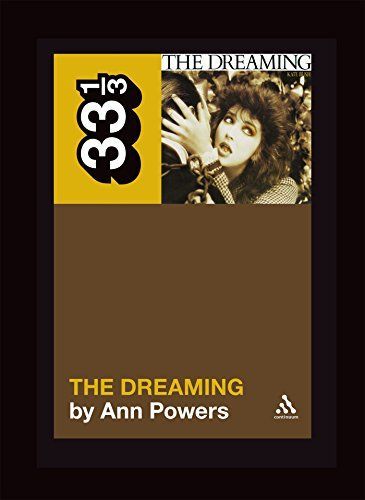
Kate Bush's The Dreaming
The bloody thrill of transformation is the focus of The Dreaming, Kate Bush's 1982 artistic breakthrough. Bush is the post-punk era's Queen Princess and Godmother, pop's embodiment of fairy. Her thirty year career has been a long dialogue with the myths and legends of human transformation, from the Gothic romance of her first hit, Wuthering Heights, to the spellcasting of her latest album's How To Be Invisible. This book will be imagistically rich and prismatically structured, interweaving the old tales of she-bears and werewolves, Donkeyskin and Coyote, with historical accounts of Houdini's wife, bank robbers like Machine Gun Molly and warriors like the revolutionary war hero Deborah Sampson. Some of these tales directly inspired Bush's lyrics, others illuminate them; all are part of the tapestry of truth and exaggeration that Bush took up with The Dreaming. These time-traveling elements will feed and interact with the book's consideration of the early 1980s, a moment of extreme gender experimentation in pop, with glam boys renaming themselves as New Wavers and rocker girls either going super-butch a la Chrissie Hynde or crazy femme a la Cyndi Lauper and Nina Hagen. Always an arena for boys to be girls and girls to be boys, pop reached science-fiction levels of androgyny with New Wave. Kate Bush's own theatrical style in concert and in photographs, her lyrical gender-jumping and the hard softness of her musical approach epitomized the unsettled nature of gender in pop at this time. With The Dreaming, where Kate Bush is boy as often as girl - and sometimes neither or both - this young, ambivalent sex symbol did battle with the culture industry attempting to enclose her in a swirly-girly image; her assault was particular to this moment, yet connects to centuries-old battles to protect or demonish the feminine ideal.